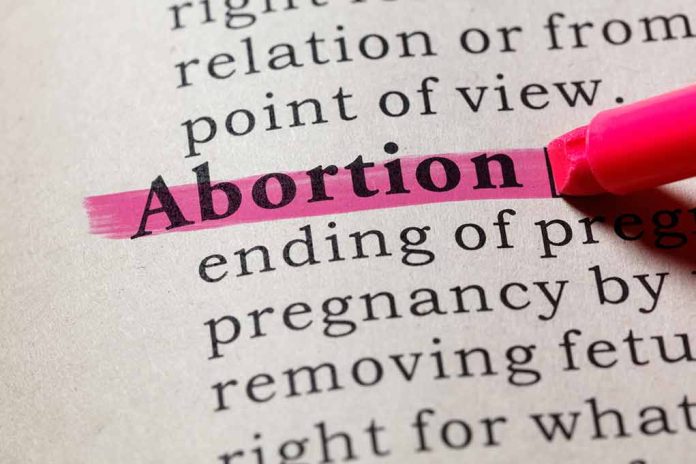
South Dakota’s pro-life politicians remain conspicuously silent on a contentious abortion amendment, raising questions about their stance and strategy.
At a Glance
- Amendment G, allowing until-birth abortions, faces little vocal opposition from South Dakota Republicans
- Key figures like Gov. Kristi Noem and Sen. John Thune have not publicly addressed the amendment
- The amendment’s vague language could potentially undermine parental rights and conscience protections for doctors
- Some state-level Republicans have either supported the amendment or remained silent
- Pro-life advocates argue that vocal opposition from leaders could rally support against the amendment
South Dakota’s Political Landscape and Amendment G
South Dakota, long known for its strong pro-life sentiments, finds itself at a crossroads with the introduction of Amendment G. This controversial measure, set to appear on the November 5 ballot, has created an unexpected political silence among the state’s typically vocal pro-life politicians. The amendment, which would permit abortions through birth if deemed necessary for women’s health, has not elicited the strong public stances one might expect from the state’s Republican leaders.
The Silence of Key Republican Figures
Governor Kristi Noem, a prominent pro-life figure, has yet to publicly oppose Amendment G, despite her well-known stance on abortion. Similarly, Senators John Thune and Mike Rounds have not taken clear positions on the amendment, with Thune’s office stating, “the issue you are addressing is primarily a state issue.” This response seemingly deflects responsibility back to state-level officials.
“Governor Noem is pro-life” and “Every South Dakotan knows it.”
Representative Dusty Johnson has indicated his intention to vote against the amendment and inform South Dakotans about its flaws. However, he has not provided details on his efforts to oppose it actively. This lack of vocal opposition from top Republican figures has drawn criticism from within their own party.
Criticism from Within the Party
State Representatives John Mills and Brandei Schaefbauer have voiced their disappointment in the lack of opposition from top politicians. They argue that vocal opposition from leaders could rally support against the amendment and protect the state’s pro-life stance. The silence from Republican leaders is seen by some as a strategy to protect their power, but critics warn it may ultimately harm their pro-life credibility and the constituents they represent.
“We have an inherent responsibility to promote policies encouraging individuals to choose life.”
The Implications of Amendment G
Amendment G’s language is vague and undefined, particularly concerning the term “women’s health.” This ambiguity could potentially allow for broad interpretation, effectively permitting abortions up until birth. Furthermore, the amendment could undermine parental rights and conscience protections for doctors who object to performing abortions. These far-reaching implications make the silence from pro-life politicians even more perplexing to their constituents and supporters.
The Path Forward
As the November 5 ballot approaches, the question remains whether South Dakota’s pro-life politicians will break their silence on Amendment G. The amendment’s presence alongside a marijuana legalization proposal is seen by some as a tactic to attract voters who might not otherwise participate in the election. This strategy adds another layer of complexity to an already contentious issue.
The silence from Republican leaders on Amendment G stands in stark contrast to South Dakota’s history of strong pro-life advocacy. As the debate continues, voters and pro-life advocates alike are left wondering about the future of abortion policy in the state and the true stance of their elected officials on this critical issue.
Sources
1. South Dakota’s ‘Pro-Life’ Politicians Notoriously Silent On Extremist Abortion Amendment









